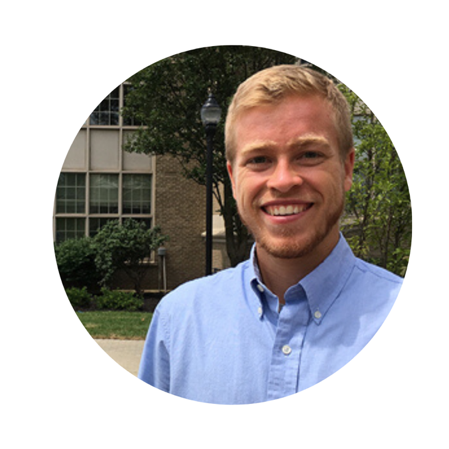Spencer Liechty
What brought you to ISSJ?
I came to the ISSJ program in order to enhance my work as a college campus minister. In order to best accompany students on their journey of faith, ask meaningful guiding questions, and facilitate experiences that make one think about the world and themselves in a new, broader way, I too need to be at constant work in educating myself and broadening my own perspective. Because my role as a campus minister is to both challenge and support students as they deepen their spiritual lives, pursue justice, and promote pluralism, I needed a program that would deepen my own faith formation, continue my education for social change and dialogue, and equip me to encounter others in a diverse world to explore the intersection of faith and justice. I found the ISSJ unique in its integration of spirituality and social engagement, offering specialized tracks geared toward applying what I learned in the classroom to my professional life.
What impact has your studies with ISSJ had on you?
When I reflect upon the impact of my studies with the ISSJ, three experiences stand out. First, is the practical exploration of the intersection of faith and justice through the diverse and well balanced course requirements of the program. I was exposed to courses in both traditional theological analysis of scripture and history as well as courses that were focused on contemporary justice issues that integrated these theological approaches such as a class on scripture and the global refugee crisis and a class on environmental justice from the perspective of world religions. Second is the opportunity for dialogue amongst a diverse group of classmates about complex issues. The vast majority of classes in the ISSJ are structured in seminar style where instead of being lectured at, there is an opportunity to participate, articulate thoughts, apply the material to your experience, and be enriched by the perspective and experience of others through robust, deep conversation. I am grateful to not only have professors who have a wealth of knowledge and contributions to their field of expertise, but also for the engagement with the cohort of other students who were eager to learn and exchange ideas. Third is the development of my own leadership capacity for ministry and the common good in professional practice. The ISSJ equipped me with a useful set of skills and knowledge to deal with contemporary issues in encountering others in a professional ministry setting. Through courses in ethics, a developmental psychology elective, and Franciscan and Ignatian spirituality I have gleaned new ways of approaching my work as well as a new toolbox of material to share with those I accompany in ministry.
